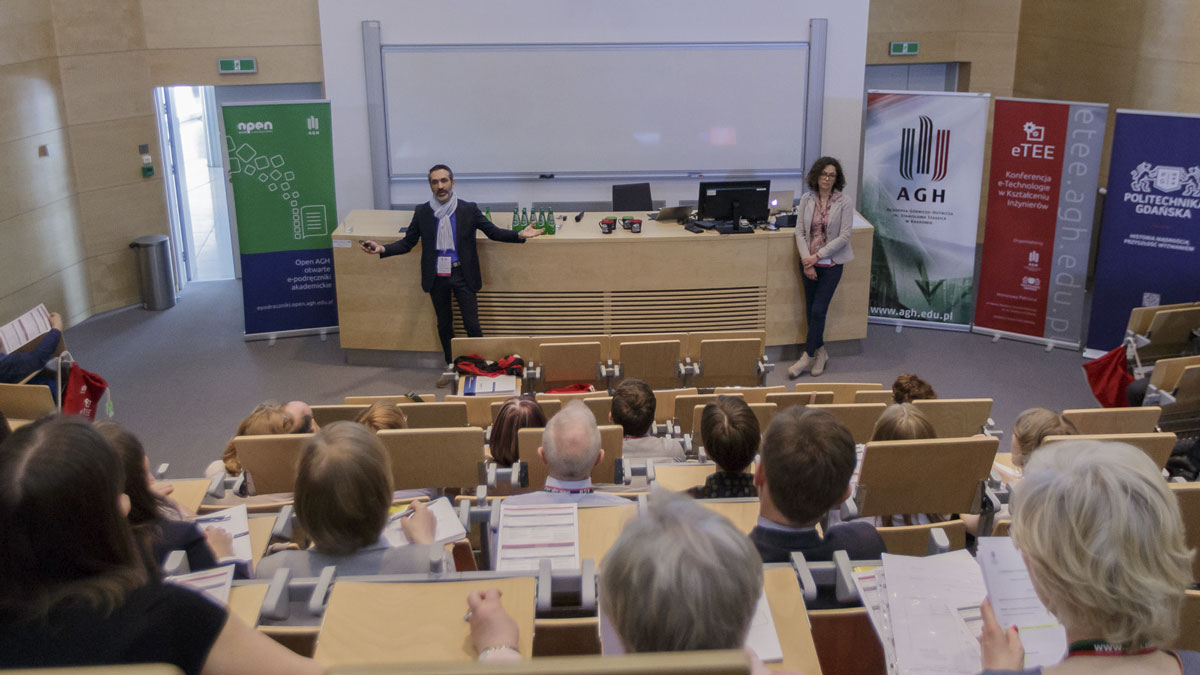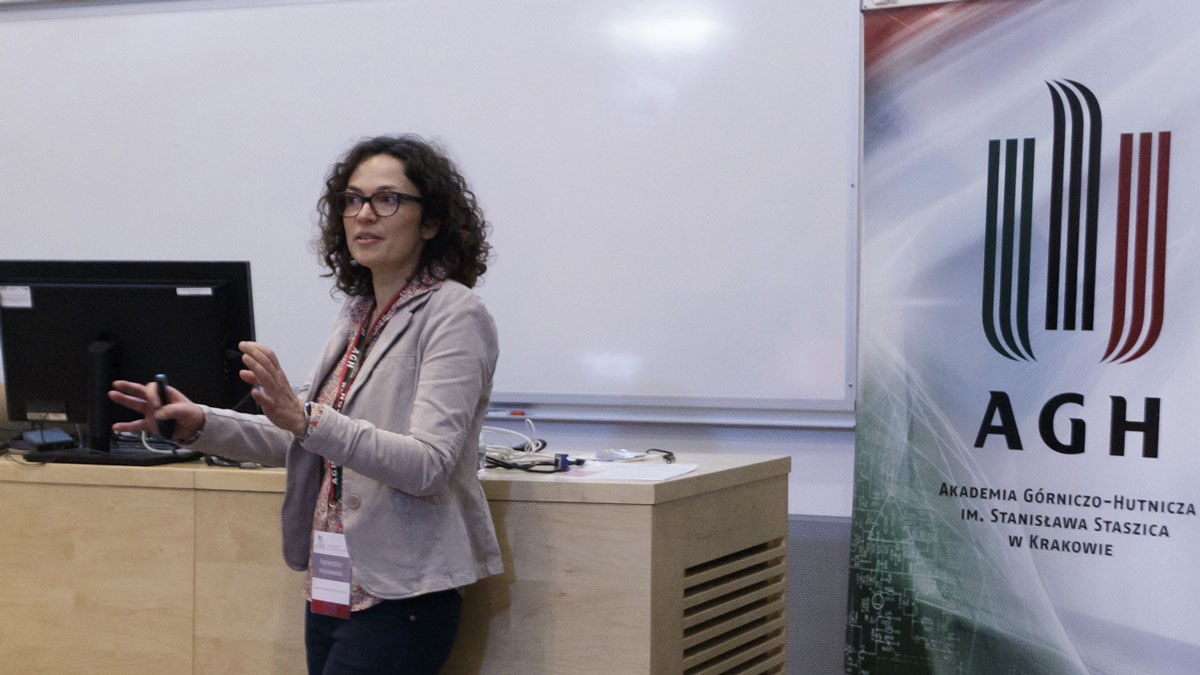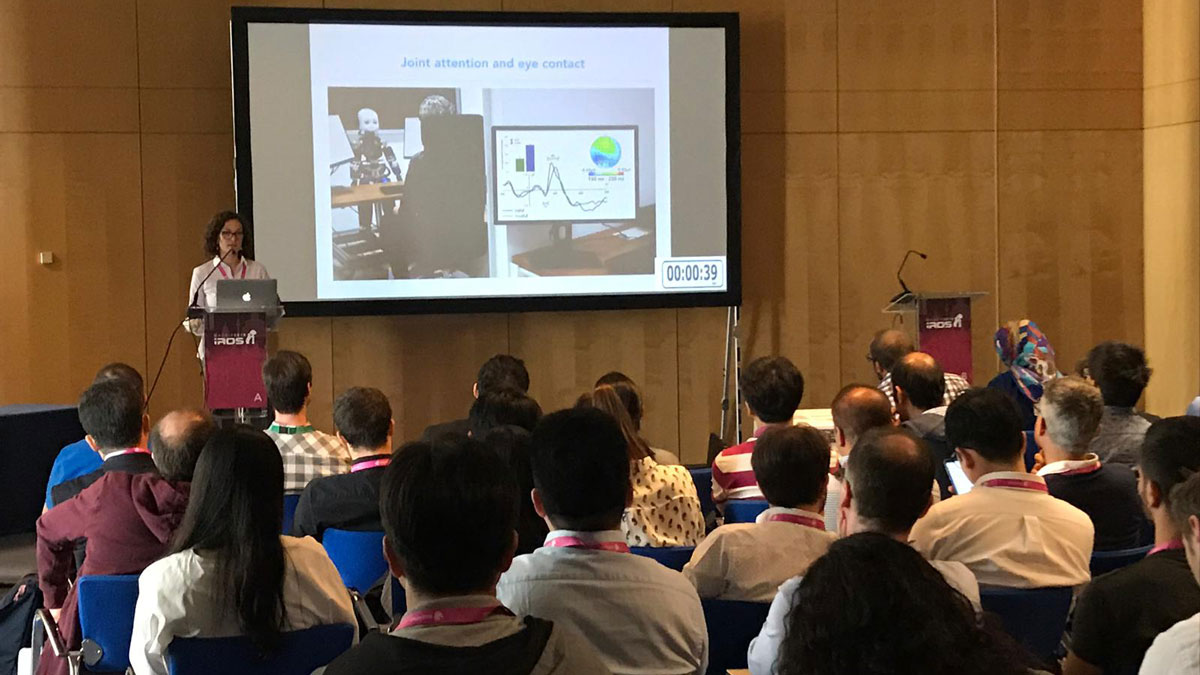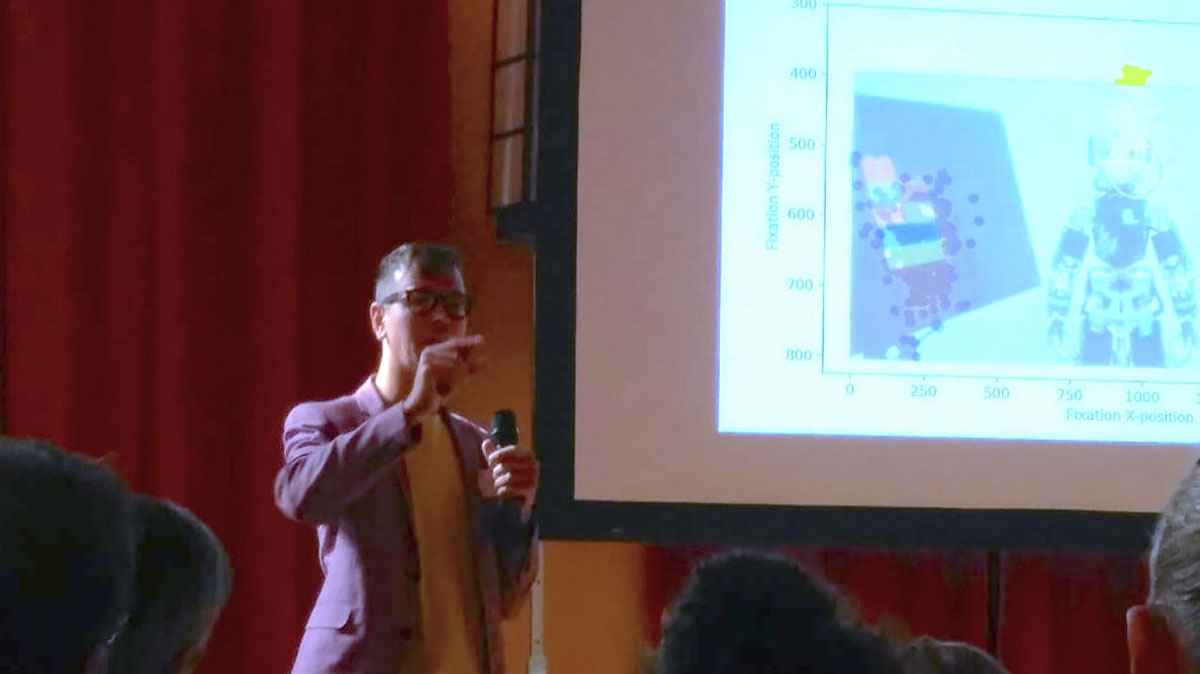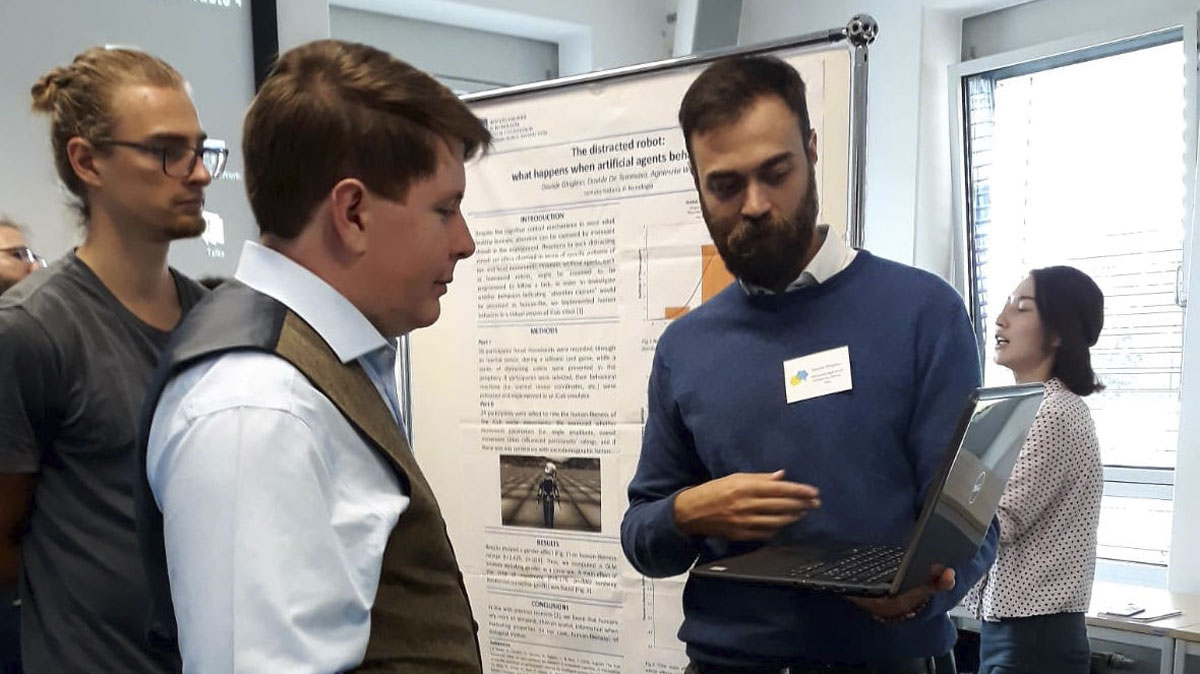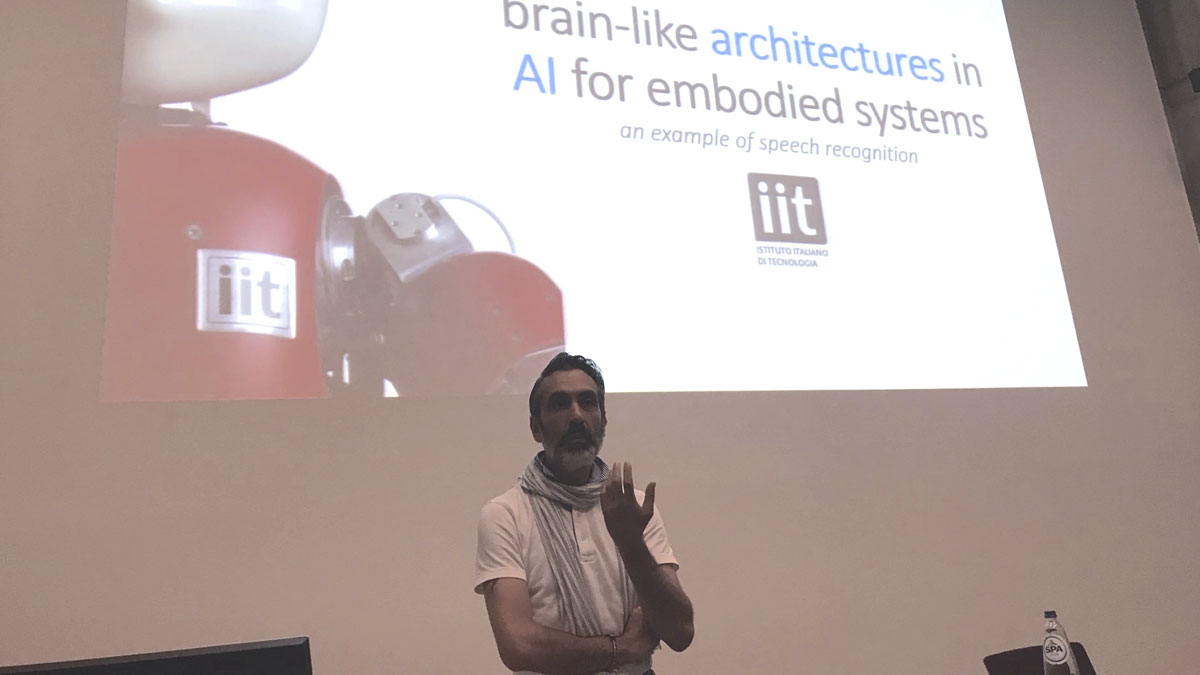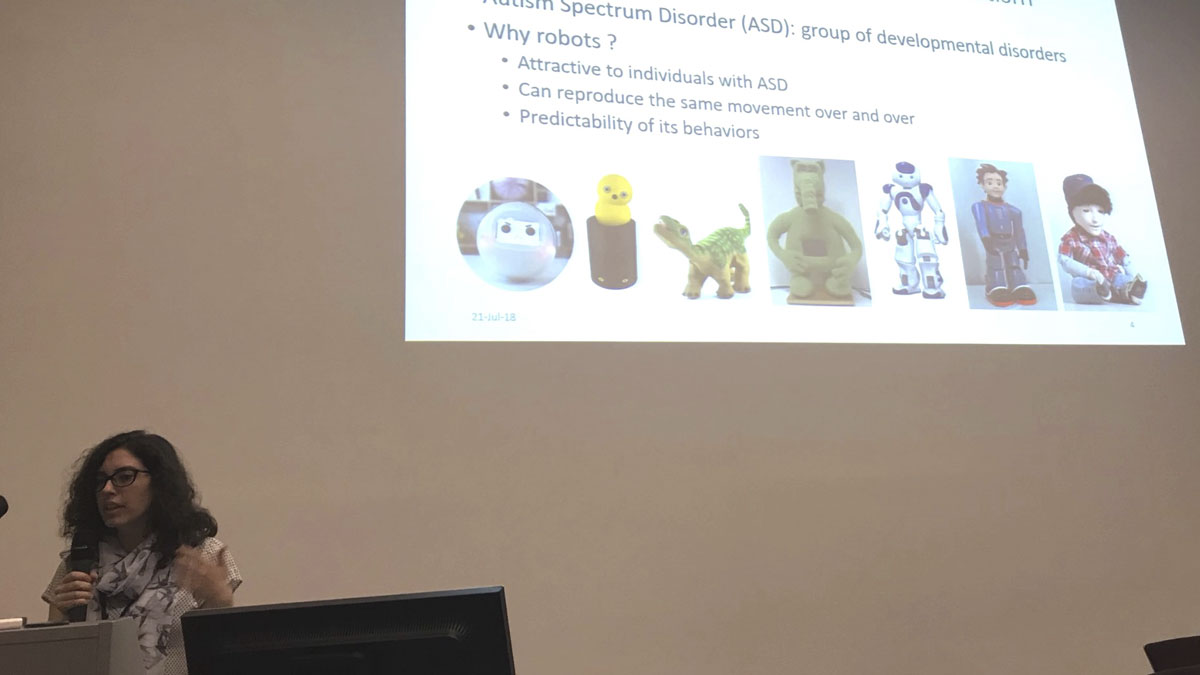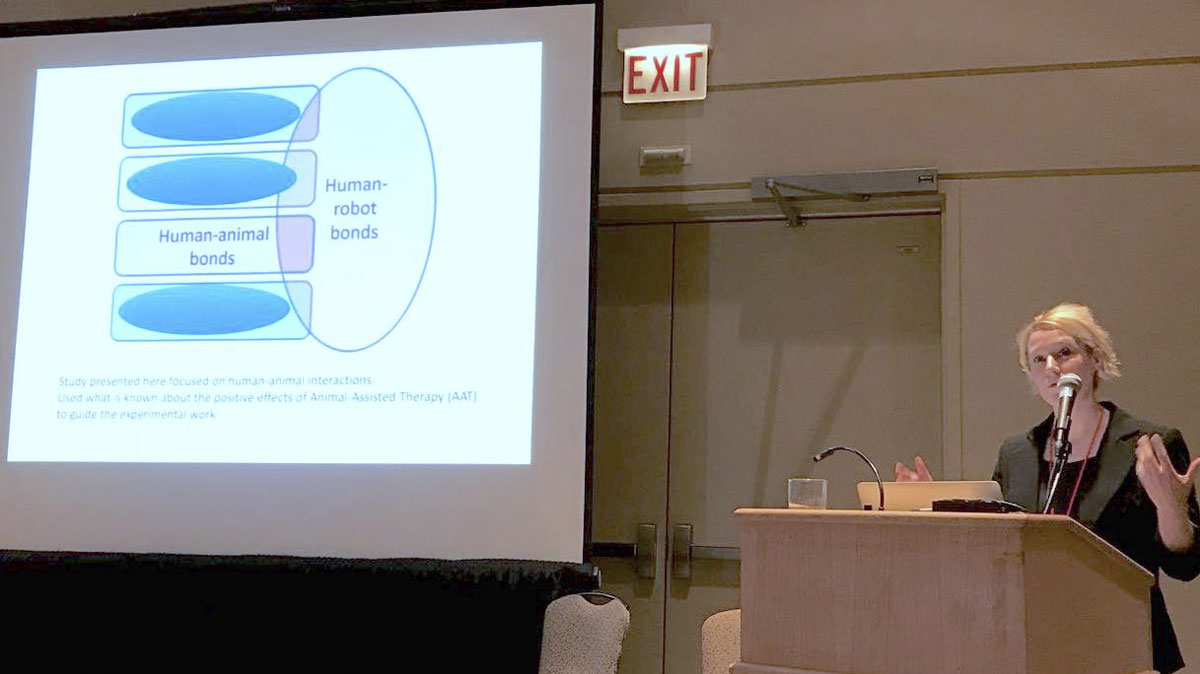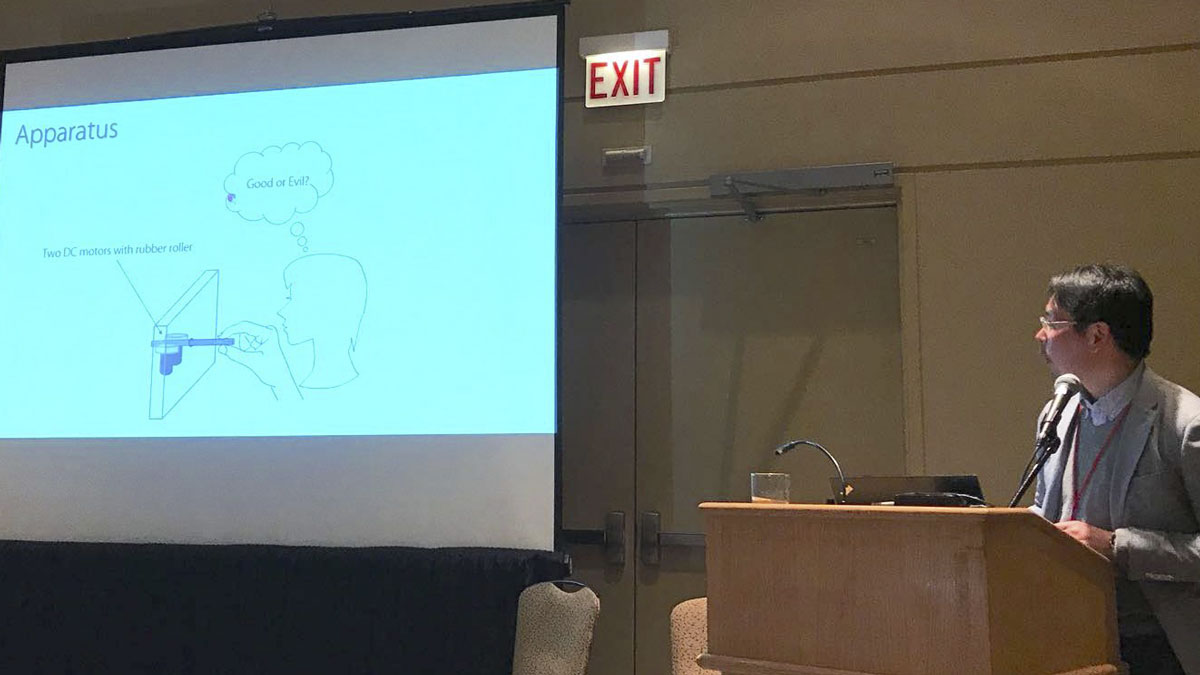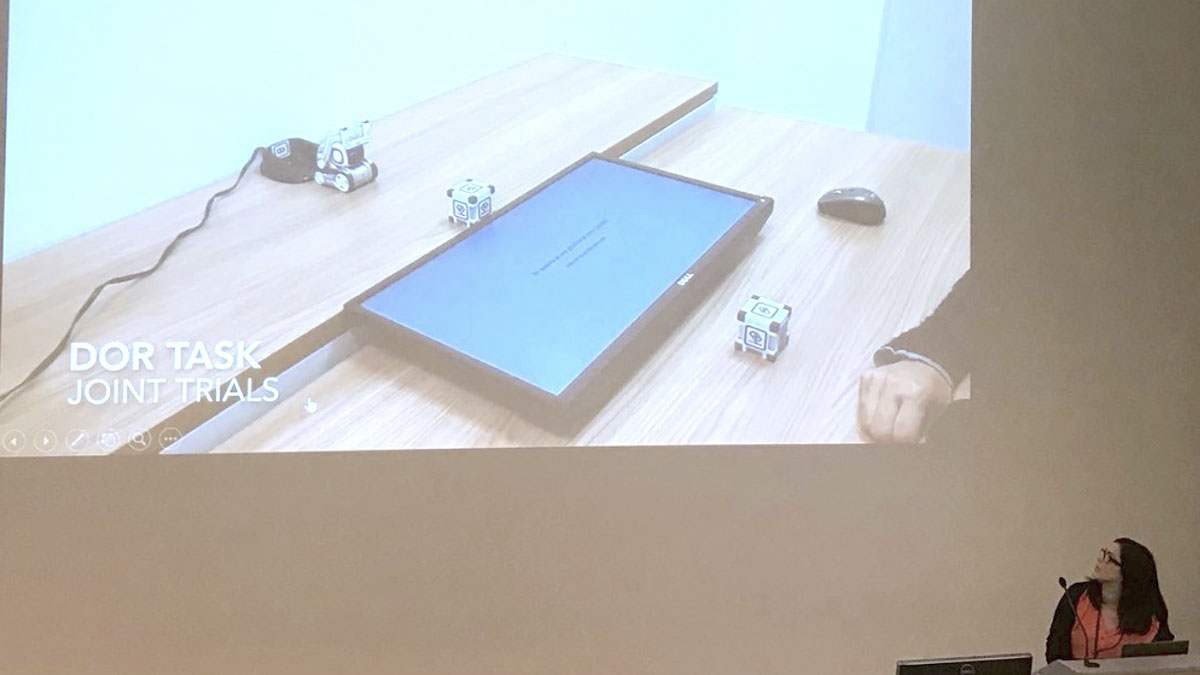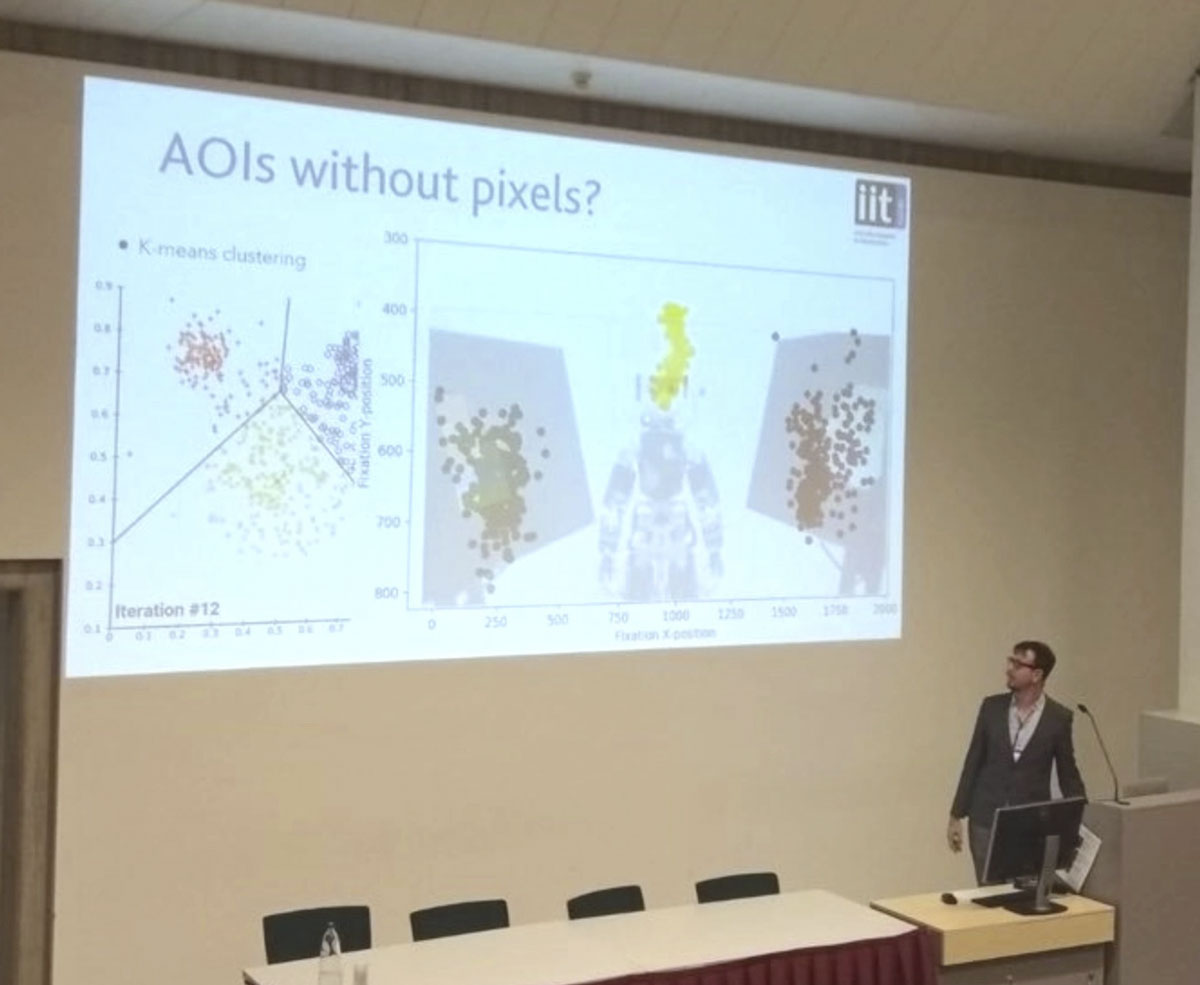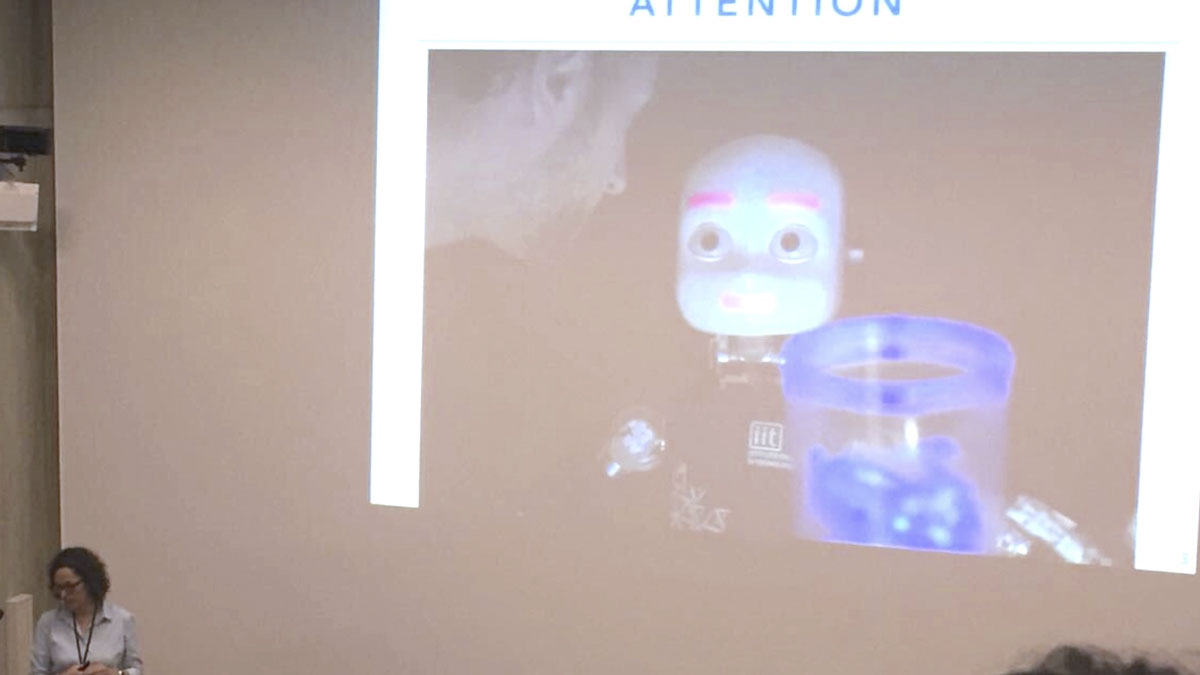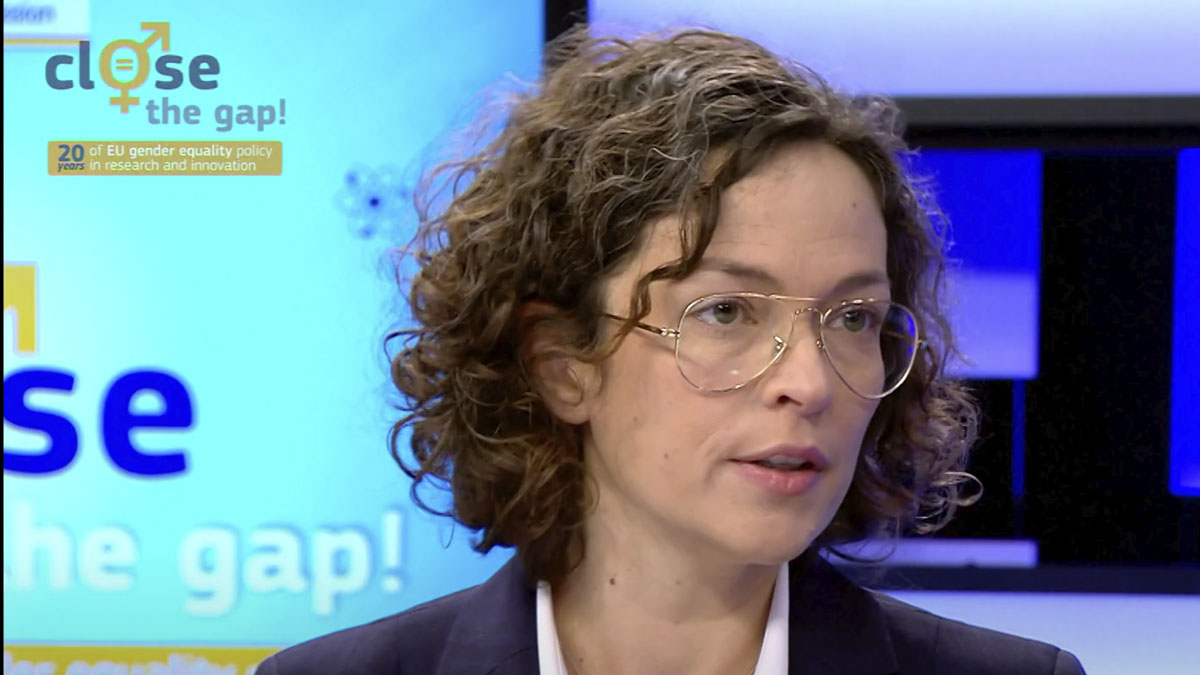News
2019
The conference brought together researchers working on the interaction between humans and intelligent robots and on the integration of robots into the fabric of our society. Fantastic organization and great social events facilitated the interaction. Lots of interesting conversations with young and experienced researchers from all over the world.
We also actively contributed with invited talks, accepted papers and posters. Interestingly, we presented the work we conducted together with the iCub facility of IIT, putting together efforts to bring robots to clinical scenarios and measure their impact with neuroscience methods.
We are very happy to be part of that community and wish to have more fruitful exchanges in the short future. Our team is ready to keep contributing!
November 26–29, 2019
At the 21st Meeting of the European Society for Cognitive Psychology, the S4HRI was represented by an organized symposium and several individual talks.
Francesca Ciardo and Agnieszka Wykowska organized the symposium. Its title was “Exploring Cognition Using New Technological Advances Such as Embodied Artificial Agents,” and it aimed to highlight the crucial role that the use of embodied agents plays in modeling cognitive processes and in understanding human cognition. The invited speakers were Dr. Emilie Caspar (Netherlands Institute for Neurosciences & Université libre de Bruxelles), Prof. Emily Cross (University of Glasgow), Prof. Jocelyne Ventre-Dominey (Inserm, Dijon), Dr. Pablo Lanillos (Technische Universität München), Prof. Tony Prescott (University of Sheffield). The speakers covered a broad spectrum of topics in cognitive psychology ranging from human-robot interaction to modeling cognitive processes in an embodied system. The topics included the sense of agency, the illusion of embodiment in a robot, body illusions, and the self – from psychology and computational modeling perspective.
We had a great inspiring time at the symposium discussions! Besides, Francesca and Agnieszka gave oral presentations, while Serena and Kyveli presented posters.
Great team representation at ESCoP 2019!
September 26–29, 2019
The European Conference for Cognitive Science 2019 featured a large number of experts from Europe and overseas in multiple disciplines. We contributed with a talk from Davide Ghiglino "Human sensitivity to subtle hints of human likeness in humanoid robot’s behavior," a poster by Cecilia Roselli "Vicarious sense of agency in human-robot interaction" and a contributed symposium organized by Agnieszka Wykowska and Jairo Perez-Osorio "Conditions and consequences of adopting intentional stance toward other agents." The symposium counted as invited speakers: Prof. Tobias Schlicht (Philosophy, Ruhr-Universität Bochum), Prof. Kai Vogeley (Psychiatry, Uniklinik Köln), and Prof. Agnieszka Wykowska (Human-Robot Interaction, IIT). The three speakers covered different disciplines — from philosophy through cognitive neuroscience and robotics to psychiatry. The presentations spanned over the theoretical issues related to the concept of the intentional stance, empirical approaches, and methodological challenges, as well as clinical findings. The symposium concluded with a round-table discussion addressing the role of intentional stance for various mechanisms of social cognition, and challenges in the operationalization of the intentional stance concept.
The conference served as a scenario for a friendly interchange of ideas, to share our findings with the vibrant cognitive science community.
September 1–4, 2019
The eleventh edition of the ACM Symposium on Eye Tracking Research & Applications (ETRA 2019) took place in Denver, Colorado, USA. This year symposium focused on presenting the state-of-the-art advances in multidisciplinary research fields. Fascinating research showed the new capabilities in gaze tracking systems, gaze aware applications, gaze based interaction, and eye movement data analysis. Davide presented an open-source suite we implemented for using the Tobii Pro Glasses 2 wearable eye-tracker in custom eye-tracking studies (TobiiGlassesPySuite). The paper provides a platform-independent solution for controlling the device and for managing the recordings that consists of Python modules, integrated into a single package, accompanied by sample scripts and recordings. The proposed solution aims at providing additional methods with respect to the manufacturer's software, for allowing the users to exploit more the device's capabilities and the existing software. The suite is available for download from the repository indicated in the paper and usable according to the terms of the GNU GPL v3.0 license. (https://dl.acm.org/citation.cfm?doid=3314111.3319828)
March 11–14, 2019
GREAT NEWS!!
Almost at the same time, our group got two symposia accepted. The first will be at the 21st meeting of the European Society of Cognitive Psychology (ESCoP) that will be held between the 25th and 28th of September in Tenerife. Agnieszka Wykowska and Francesca Ciardo will be held the symposium “Exploring Cognition Using New Technological Advances Such as Embodied Artificial Agents” with the participation of the following speakers: Emilie Caspar (Centre for Research in Cognition & Neurosciences, Brussels), Emily Cross (University of Bangor/University of Glasgow), Jocelyne Ventre-Dominey (Robot Cognition Laboratory, Université de Bourgogne), Pablo Lanillos (Technical University Munich), & Tony Prescott (The University of Sheffield).
Similarly, another symposium was accepted on the European Conference for Cognitive Science 2019 (EuroCogSci) situated minds and flexible cognition that will be held in Bochum from the 2nd until the 4th of September. Jairo Perez-Osorio will lead the discussion on the Symposium V: “Conditions and Consequences of Adopting Intentional Stance Toward Other Agents.” With the participation of Tobias Schlicht (Ruhr-Universität Bochum), Agnieszka Wykowska (Istituto Italiano di Tecnologia, Genova), and the Dr. Kai Vogeley (Uniklinik Köln).
We are looking forward to exchanging ideas in this fascinating topics on this stimulating environments!
April 16 2019
With the participation of the most recognized figures in the field, the 14th Annual ACM/IEEE International Conference on Human-Robot Interaction took place in Daegu, Korea. With the theme of “collaborative HRI”, the conference was a great space to share ideas regarding the latest progress on the field. Multiple talk and demos made this year conference a great experience. We contributed with a poster about how humans attune to a “follower” robot. (Ciardo, De Tommaso, & Wykowska, A, 2019). The study examined whether humans adapt their performance to delays in observed robot’s actions in a leader-follower interaction scenario. Participants were asked to “teach” a sequence of musical tones to the iCub robot. The robot repeated the sequence with decreasing delay between its own taps and taps performed by the participants. We observed that the mean period of participants’ tapping behavior was affected by the iCub’s performance. This suggests that humans are sensitive to subtle parameters in the robot’s behavior and they adapt to them in leader-follower contexts. (Links here: https://doi.org/10.1109/HRI.2019.8673262 Preprint: pdf)
March 11- 14 2019
2018
The conference, organized at the heart of the EU in Brussels, gathered scientist leading ERC-funded projects to discuss the current state of artificial intelligence, to get a better understanding of the potential benefits and threats of improving AI, and to highlight the future ways for potential ways for seizing the opportunities of AI whilst limiting possible negative effects for humanity.
Several sessions took place over two days with a very intense schedule. Agnieszka participated in the third session that discussed the ethical challenges of Artificial Intelligence (full coverage from ERC here: https://goo.gl/AfK8ZC). Moreover, Agnieszka was also invited to a live roundtable discussion "ERCtalks | Artificial Intelligence – Should we be afraid?" in which, together with the ERC grantees Phil Howard and Simon Thorpe, addressed questions like "are we prepared to socialise with AI robots?" or "will democracy survive the rise of AI?". The live event took questions posted by the general public via the EU commission webpage, twitter and facebook. Watch the full video of the roundtable below.
This event was a great opportunity not only for the exchange of ideas among ERC grantees but also to position ERC as one of the main contributors to the Artificial Intelligence (AI) research through its bottom-up approach.
October 25 - 26 2018
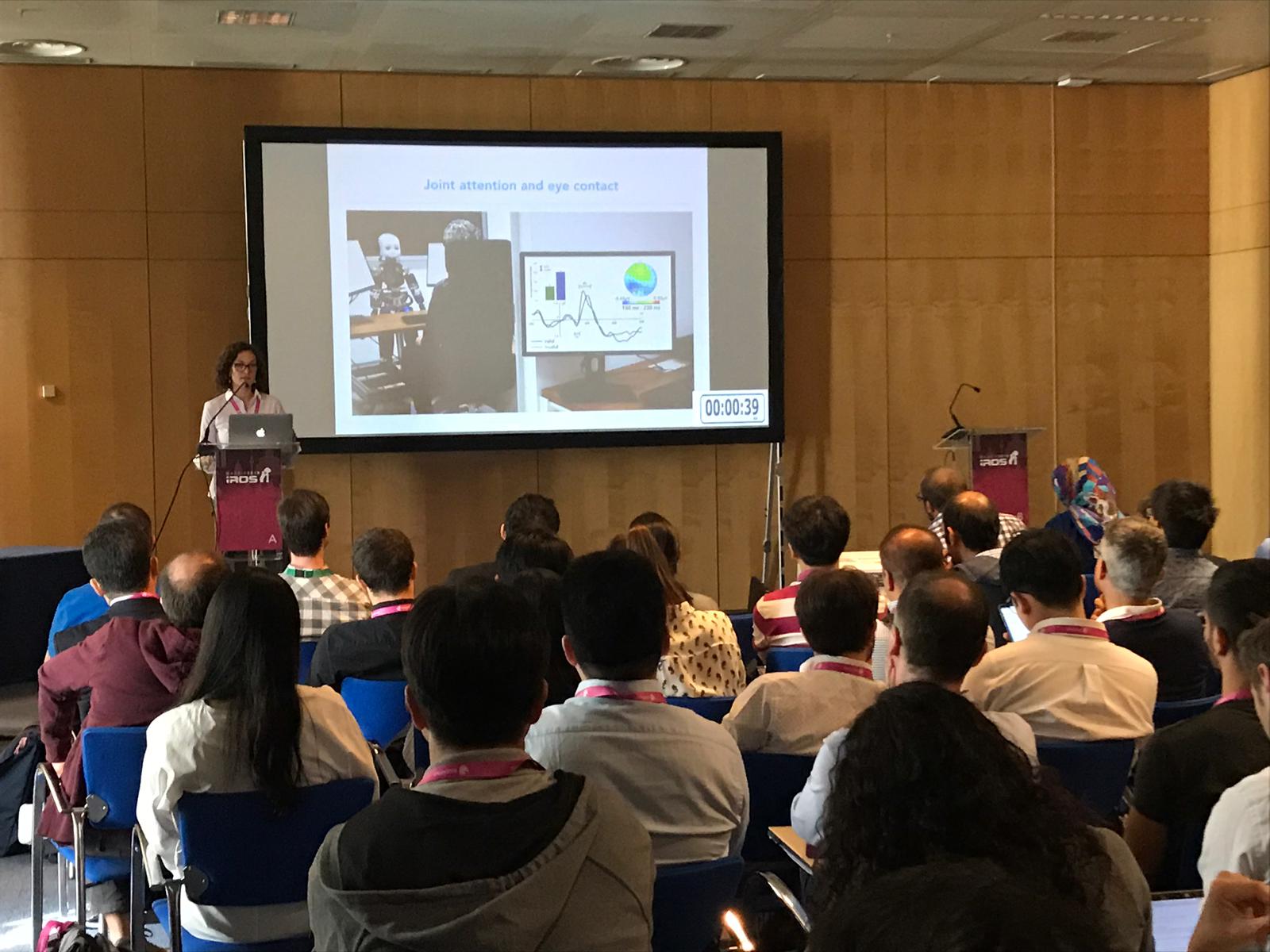
Agnieszka and Davide de Tommaso were attending to one of the most important conferences in the field of Robotics. It as the first time that we were featured in such an important event. The theme of the conference this year was “Towards a Robotic Society”. Considering the imminent impact of robotics on people’s lives in the near future, the conference focused on the way to create novel human-robot relationships in work, personal, and social environments. Researchers from 62 countries participated with demos, posters and oral presentations in a very stimulating environment.
From our side, Agnieszka presented our work making emphasis on the advantages of using well-control protocols grounded in experimental psychology and cognitive neuroscience to investigate human responses to during HRI. Our approach was well received by the robotics community, who understood the challenges of methodologically rigorous research.
October 1 - 5 2018
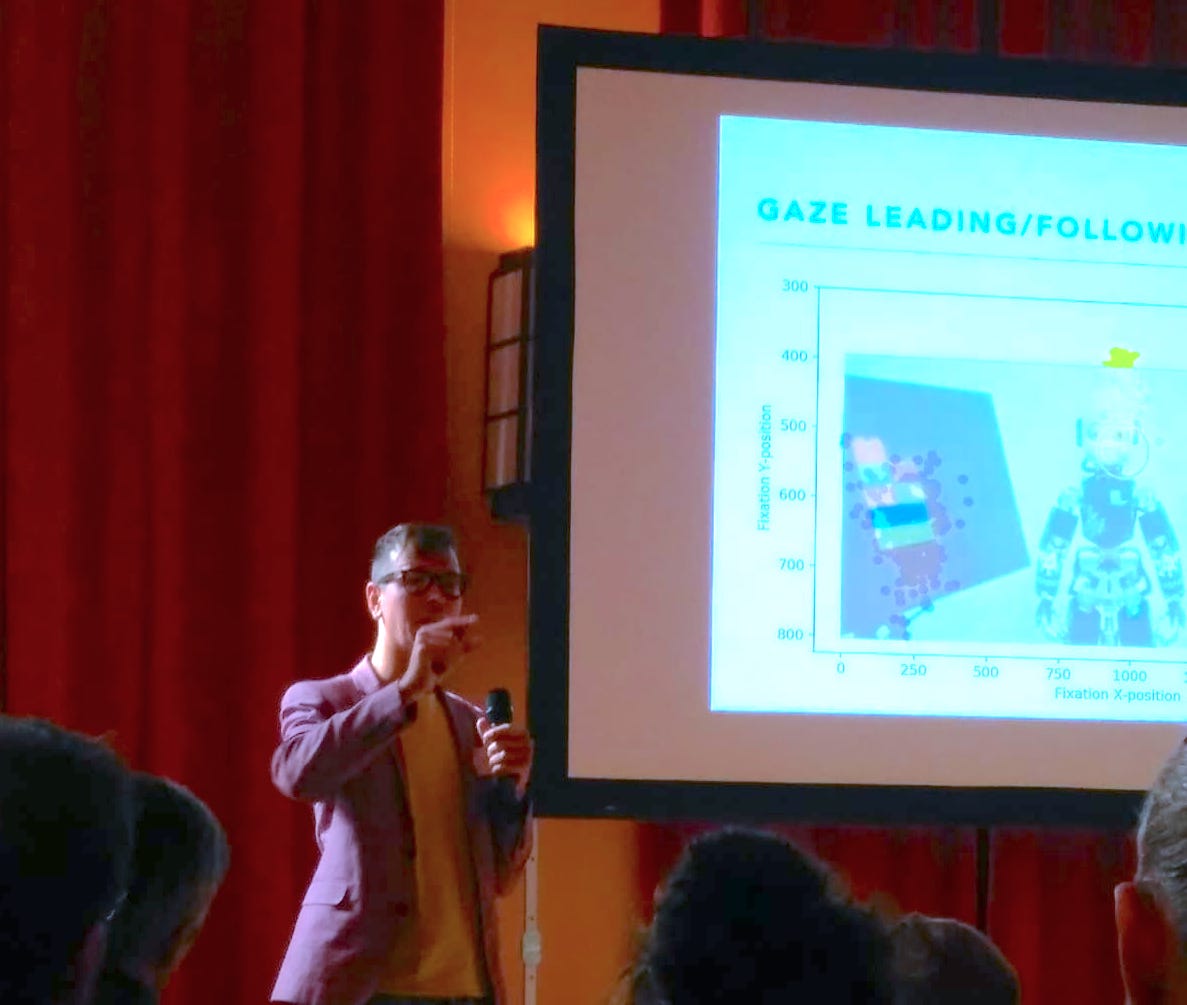
On 28th September Cesco presented the lab's work in a talk at the “Social cognition in humans and robots” conference in Hamburg, Germany. This meeting was a two-day event organised by the FET Proactive H2020 project "Socializing Sensorimotor Contingencies (socSMCs)" and the European Society for Cognitive Systems (EUCog).
The invited speakers submitted talks, and state-of-the-art posters from disciplines such as neuroscience and robot research presented forward-looking perspectives in social cognition. With that, the organisers did an excellent job at creating a platform that was both multidisciplinary and focused.
Cesco’s slides can be found on the open science framework.
September 9th 2018
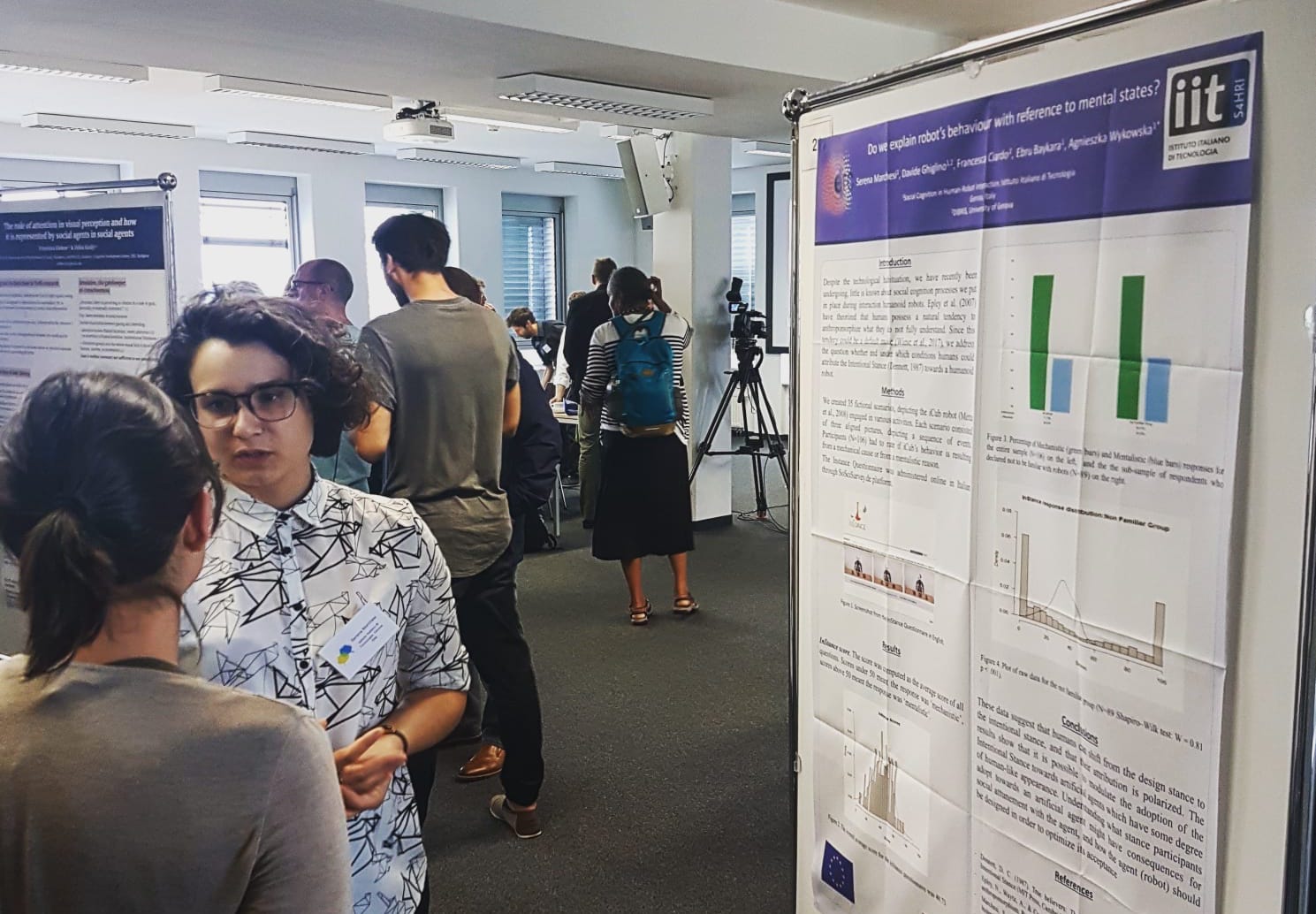
The Workshop, that took place at the Technische Universitat Dresden, was mainly focused on the methodological issues in testing and measuring human social behaviours, Theory of Mind (ToM), and empathy. Our team participated in the workshop with two posters presented by Davide Ghiglino and Serena Marchesi (poster available on instance website). We are glad to inform you that Serena was awarded for her contribution!
September 13 - 14 2018
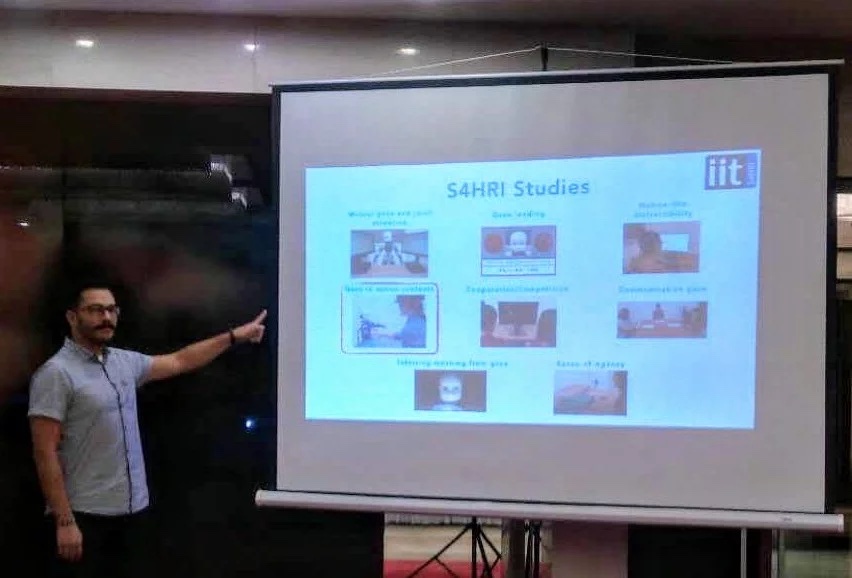
The Conference took place in the city of Nanjing –the capital of Jiangsu province of the People's Republic of China– with the participation of more than 250 researchers from all over the world. The very interesting conference was the place of multidisciplinary approaches and fruitful discussion on how to solve the problem of human-robot communication and interaction. We were present with the presentation of the accepted paper and chairing of the session on Evaluation Methods and Human-Robot Interaction Studies.
August 27th to September 1st 2018
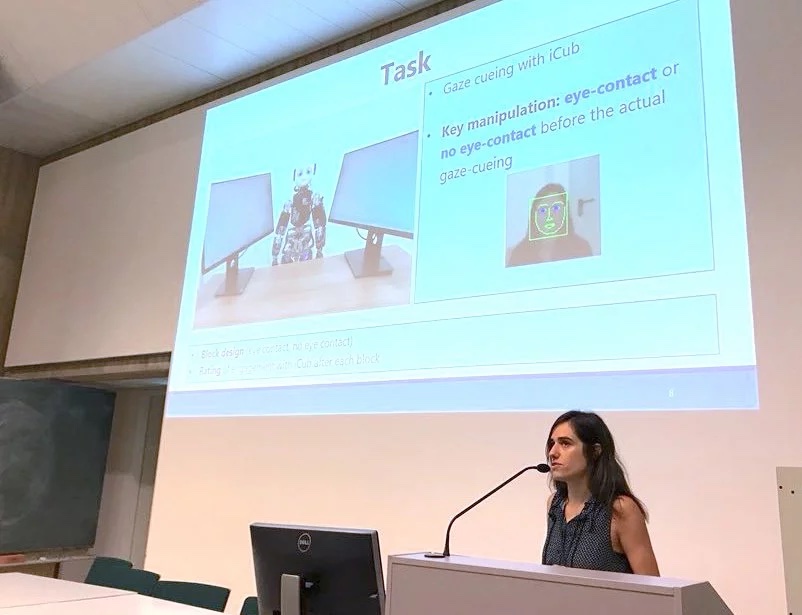
Our group actively attended to the 4th international conference of the European Society for Cognitive and Affective Neuroscience (ESCAN), which took place in Leiden, The Netherlands, between 19-22 of July (2018) at the Leiden University Medical Center. We contributed with a workshop and several talks. Agnieszka, Pauline, Cesco, Francesca, Kyveli and (feat.) Prof. Giorgio Metta shared their findings and engaged in the discussion with the attendees. A very bog conference in the heart of Holland and a great chance to show our progress. Looking forward to the next meeting!
July 22nd 2018
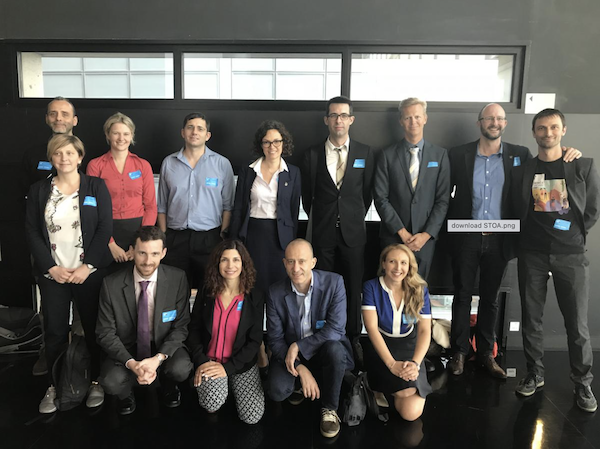
The article makes reviews some of the activities of the two-days ERC event titled "Investing in young researchers, shaping Europe’s future". The meeting gathered ERC grantees and Members of the European Parliament to review different topics that go from modern energy solutions to the digital revolution. The article reports about two of the many sessions: Digital revolution – Potential and challenges of the Information Society and Science policy, communication and global networking. The latter session brought together MEPs, the European Commission's Director General for Science Research and Innovation, the Chair of the Commission's Group of Chief Scientific Advisors and several ERC grantees, including our P.I. Agnieszka Wykowska. The discussion focused on how the research world can interact with society.
Check the full article here: https://erc.europa.eu/news-events/magazine/spotlight-scientists-european-parliament.
July 7th 2018
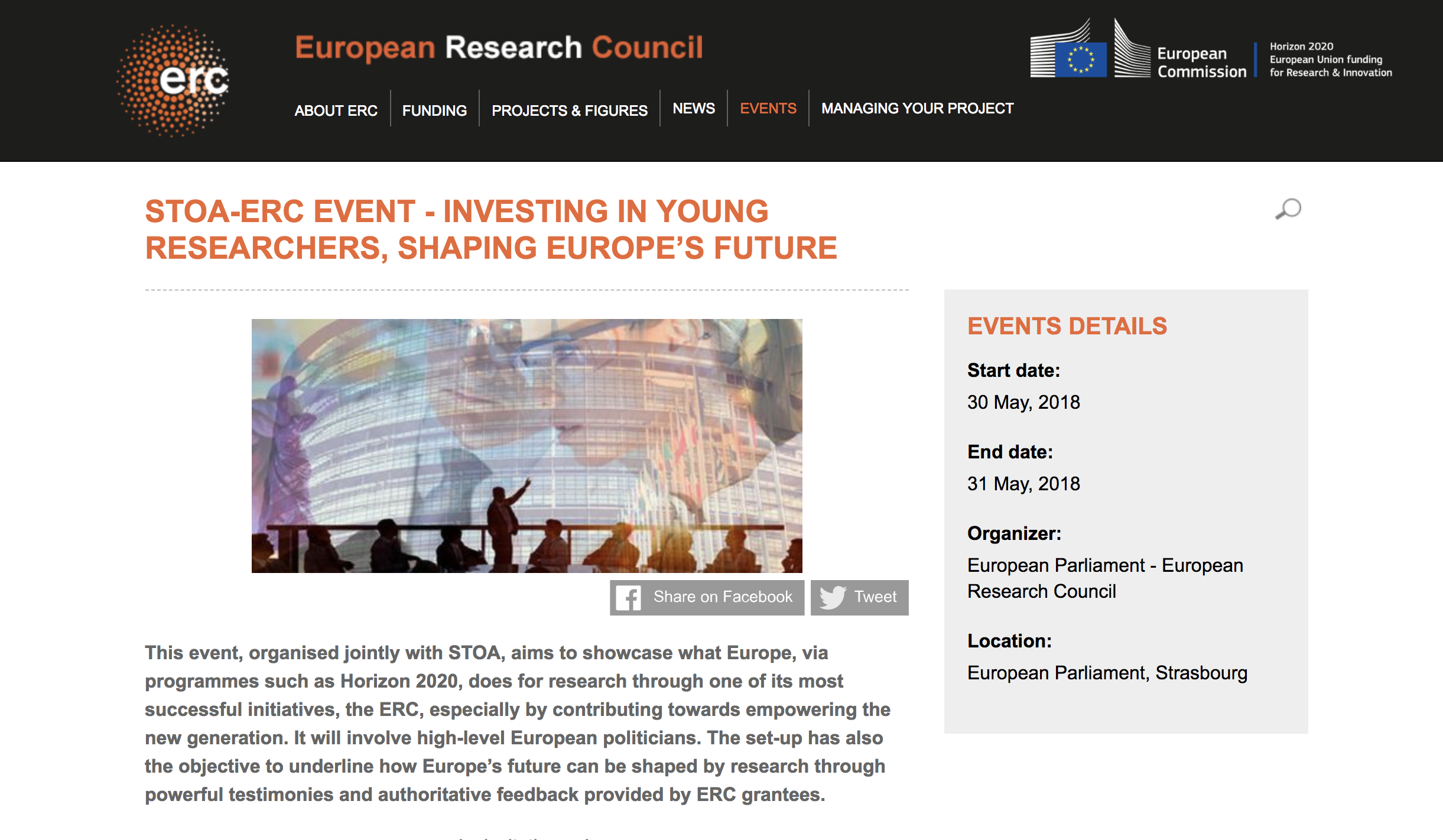
We are glad to share that Agnieszka has been invited to present her ERC grant to the President of the EU Parliament and the President of the EU Commission, among other MEPs, officials and high-level scientists.
Additionally, she will take part in the exchange sessions "Science policy, communication and global networking" and in the plenaries on 31st of May.
https://erc.europa.eu/node/2852
April 28th 2018
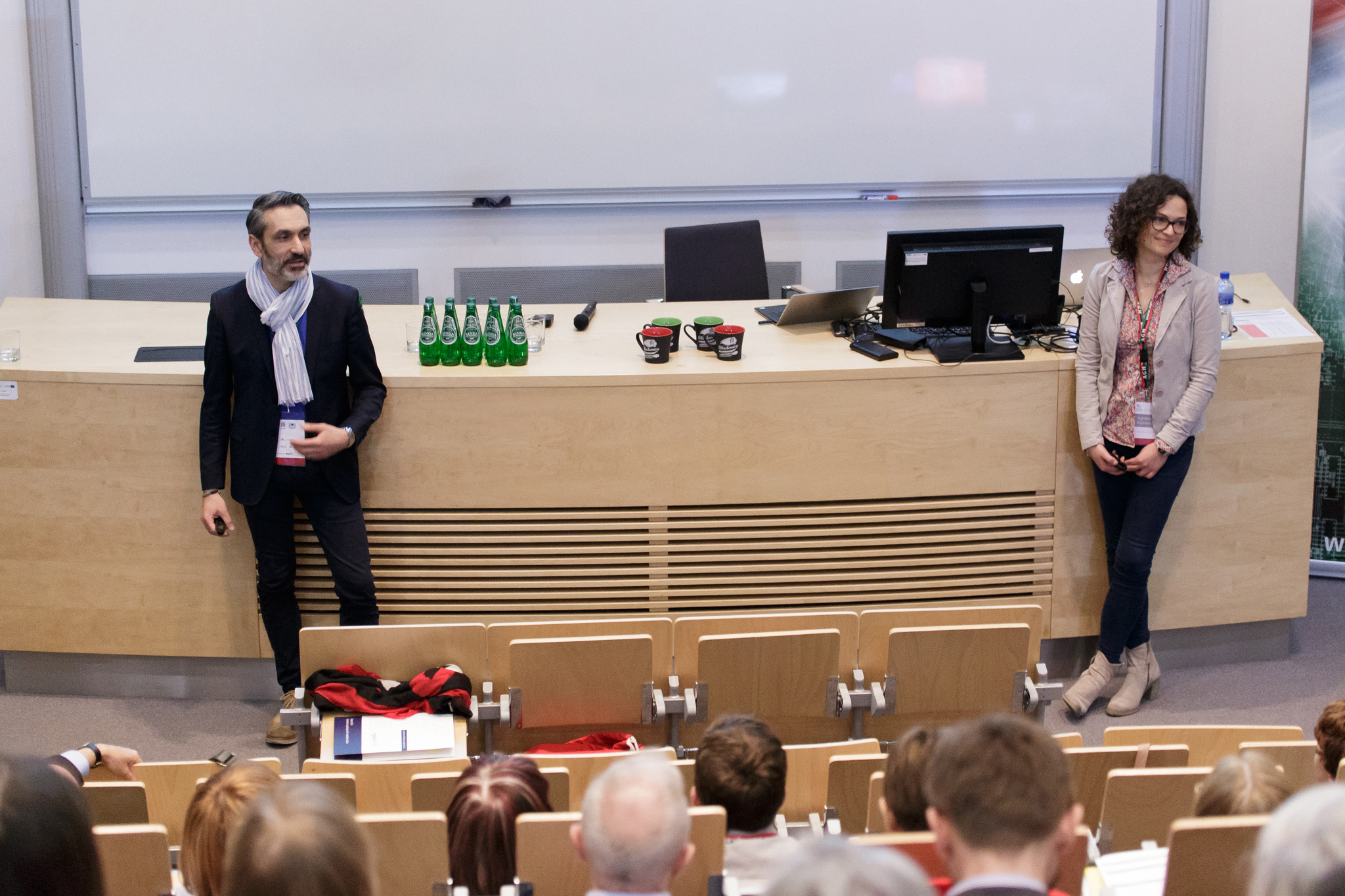
On 19th of April, at the ETEE conference in Krakow, Poland, Agnieszka Wykowska presented a joint keynote with Giorgio Metta. The researchers talked about iCub – an excellent example of openness in research and education. Agnieszka talked about her approach to human-robot interaction from the perspective of cognitive neuroscience; while Giorgio talked about robotics and AI.
In a nutshell, they highlighted how beneficial it is to build a world-wide community centered around a common project, and how this is possible thanks to open science. Moreover, they stressed the added value of truly interdisciplinary research.
April 19th 2018
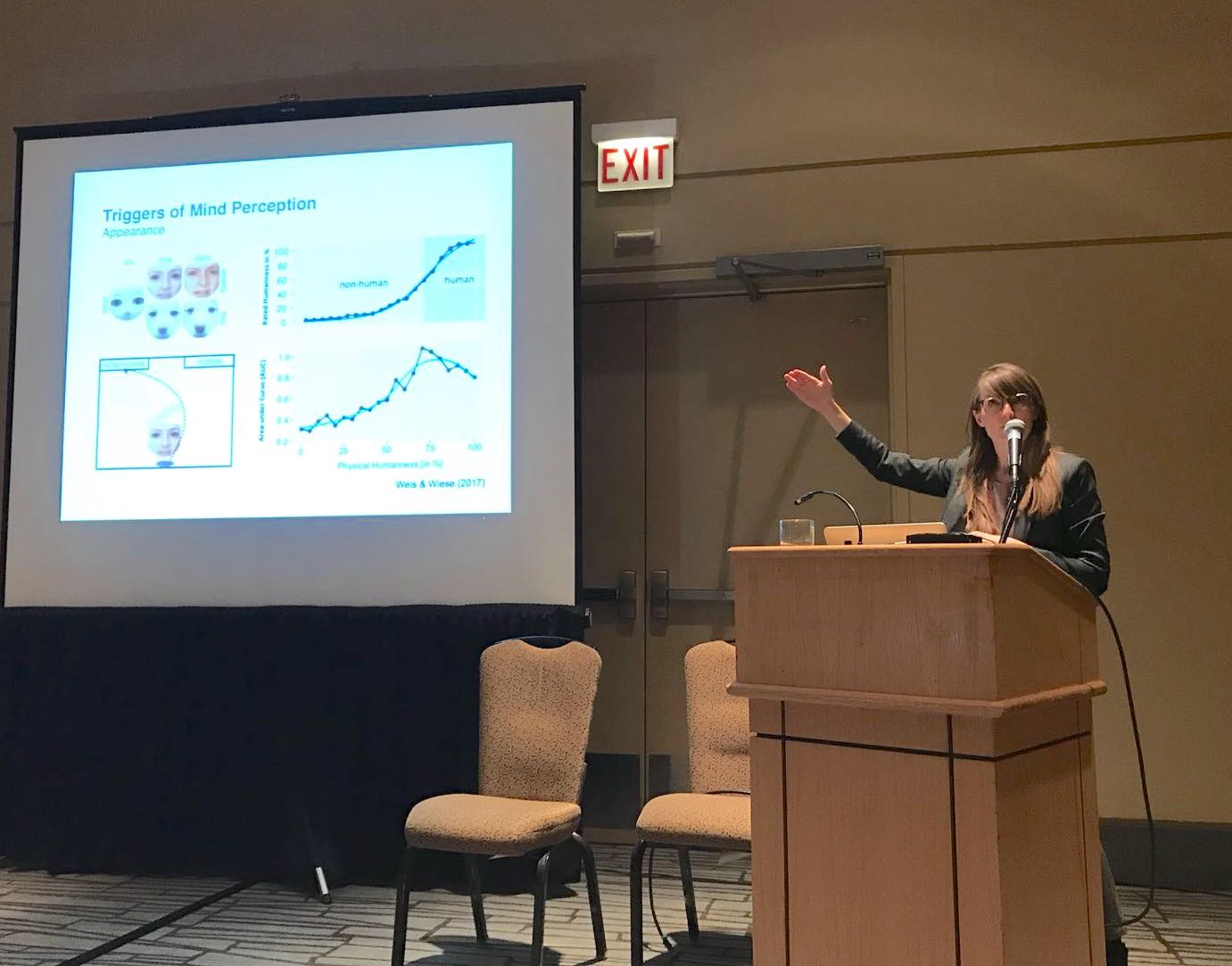
Last week in Chicago it took place the workshop "Cognitive and Social Neuroscience Methods for HRI", in conjunction with the HRI 2018 conference. The workshop was organized by S4hri_iit together with @iCub facility and Bangor University and the University of Glasgow. We had a very inspiring keynote from Tony Belpaeme, seven great talks, and a rich and fruitful discussion.
We keep moving towards HRI research based on social and cognitive neuroscience methods. Thanks to all the contributors and attendees for their participation.
See you next time!!!
Slides from Neuroscience4HRI workshop
We have uploaded to the presentations of all the contributors, including the keynote. If you missed our workshop please have a look at the webpage for more information.
https://sites.google.com/view/neuroscience-methods-for-hri/program
March 21st 2018
